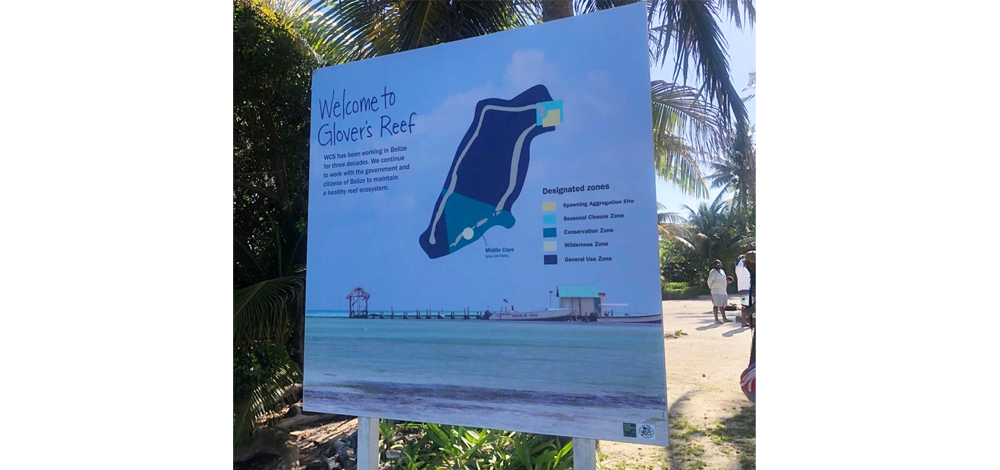by Kristen Ku
GLOVER’S REEF, Stann Creek, Thurs. Feb. 29, 2024
Over fifty marine conservation specialists from across the globe, including representation from Mesoamerica convened at Umaya Resort, in Placencia, for a crucial five-day conference from February 26 to March 1, 2024.
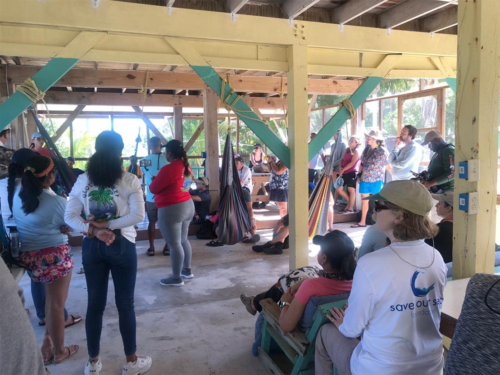
This gathering aimed to address the alarming rate of shark mortality due to overfishing and the challenges in implementing effective conservation strategies.
Despite having a ten-year shark conservation strategy in place, with initial steps taken two years prior, recent studies have shown an increase in coastal shark mortality, indicating the unsustainable pressure on these slow-growing marine predators.
The experts are exploring a range of tools, partnerships, and initiatives to enhance the implementation of shark conservation measures and speed up actions to protect these vital ocean inhabitants.
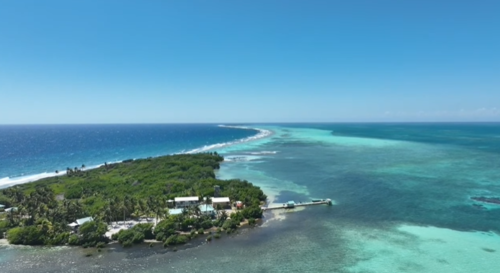
A key highlight of the meeting was a field trip to Glover’s Reef Research Station on February 28, where Belize government officials and invited members of the local media were hosted by the Belize branch of the Wildlife Conservation Society (WCS) and briefed on the impactful research being conducted by the WCS at Glover’s Reef and its implications for both local and global shark conservation efforts.
Luke Warwick, WCS’s Director of Shark and Ray Conservation, spoke on Glover’s Reef’s historical and ongoing importance in developing shark and ray conservation strategies through marine protected areas.
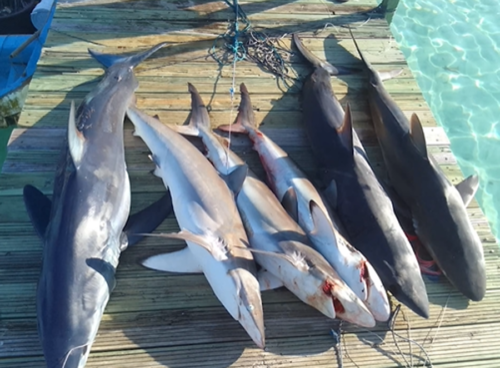
“Sharks and rays are actually the second most threatened group of animals on the planet now. They are very slow to grow and reproduce, and that’s led to huge population declines around the world. But here in Belize, where it’s a national ray sanctuary, and there are strong fisheries management measures in place for sharks, we’ve started to see stabilization and some recovery,” he said.
“In order to maintain proper ecology of the marine systems in Belize’s waters and beyond, of course, we need to have predators. We need to be able to see large megafauna as the critical species at the top of the food chain,” explained Nicole Auil Gomez, WCS Country Director for Belize.
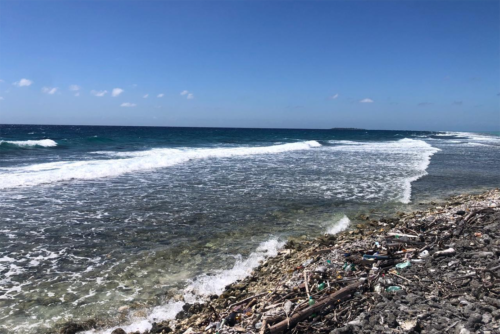
She added, “We know Belize is heavily based on, has an economy based on our natural environment. And tourism is very important, divers enjoy seeing these fish and they pay a lot of money to come back to Belize. And they fill our hotels, they fill our restaurants, a very economic driver.”
The conference addressed several other key areas, including the implementation of the WCS 2030 shark strategy, the development of science-based conservation programs, the role of anti-wildlife trafficking efforts, and the potential benefits of the WCS’s Blue Ways 30X30 approach to marine protected areas for shark conservation.

